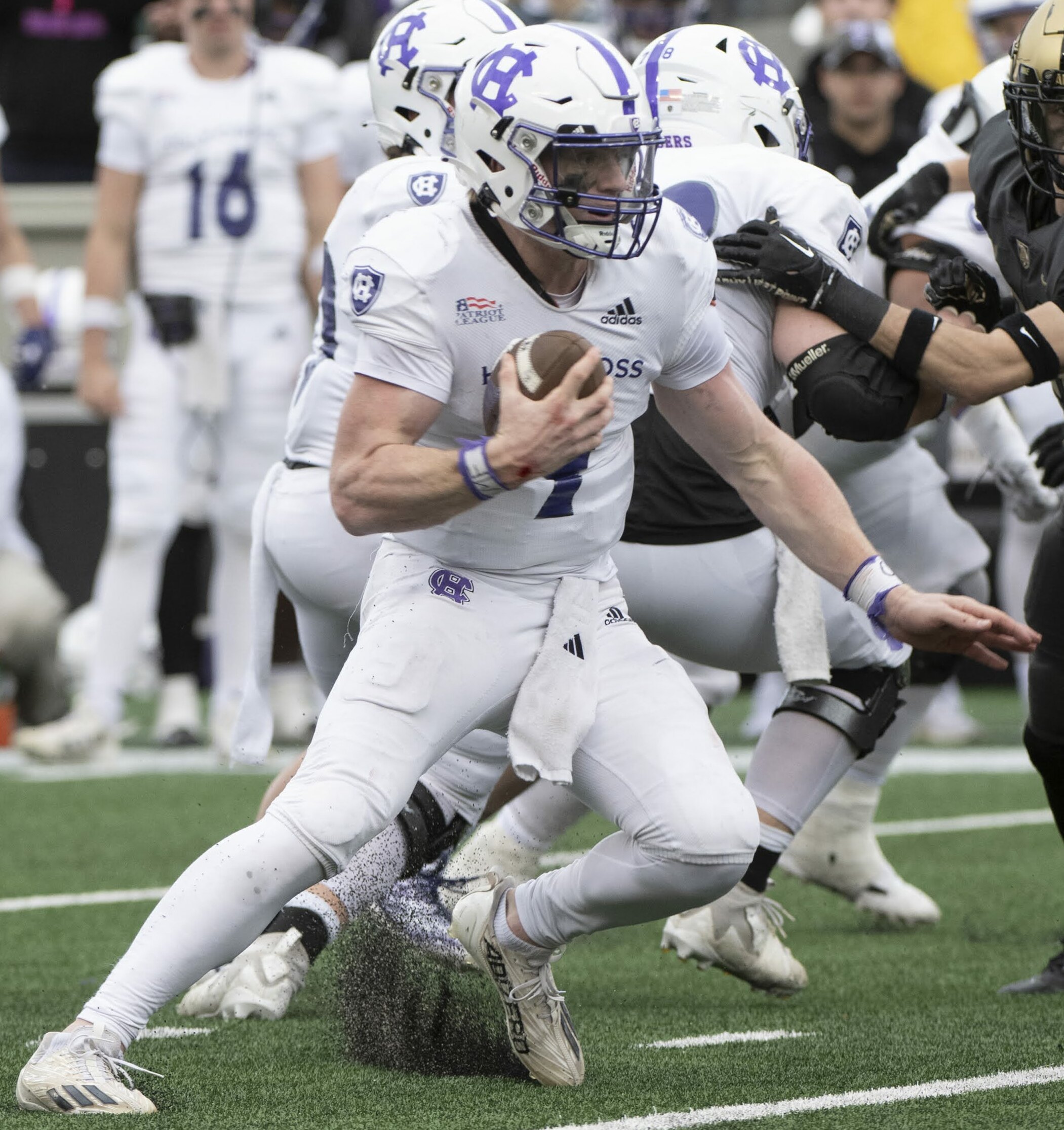Matthew Sluka carries the ball for Holy Cross before transferring to UNLV. (Wikimedia)
The University of Nevada Las Vegas’s quarterback ,Matthew Sluka, who led the Rebels to their first AP Top 25 appearance ever, announced on September 25 that he was electing to sit out the rest of the season due to NIL disputes with the program. Sluka, now a redshirt senior with one year of eligibility left, claims he was verbally promised $100,000 to transfer, but never received the money. The Rebels standout running back Michael Allen also elected to sit out the rest of the year, citing similar NIL issues with the program.
This comes after the decision in 2021 by the NCAA to allow college athletes to profit off from their own Name, Image, and Likeness (NIL). Since this rule was passed, the landscape of college football has completely changed, where it now feels like more of a pro sport than collegiate sport. Players are going wherever they can get the most money. There are benefits and negatives to this new version of college athletics. On one hand, it has helped level the playing field because more schools have the opportunity to land high-rated players with their NIL funds, compared to just a few big schools landing all the top recruits. On the other hand, it has been said that this creates a feeling of entitlement in student-athletes, as they value money over coaching or academics.
Sluka’s decision will undoubtedly have a profound impact on the future of the sport. He has set a precedent of holding universities accountable for the NIL funds they promise to their athletes. It is too soon to tell if this impact will be positive or negative, but it is clear that this is something we have never seen before in college sports, and it moves the sport one step closer to the way pro sports are run.








